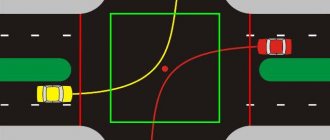Car lovers and people around them are pleased to see clean cars on the roads. Adverse weather conditions sometimes quickly dirty a car and it has to be washed more often. Not all motorists constantly use car wash services for various reasons. Many car owners wash their cars themselves. Sometimes this happens in yards or near bodies of water, which is prohibited by law. Where can you get your car in order without breaking the law?
Where is it prohibited to wash a car?
Federal laws do not list places where car washing is prohibited. The Code of Administrative Offenses only limits washing near water bodies and in forests. Other places are listed in regional codes:
- areas near bodies of water, such as rivers and lakes;
- embankments;
- yards;
- children's and sports grounds;
- pedestrian paths;
- streets;
- public spaces: squares, squares, parks;
- forests;
- agricultural land.
According to the sanitary rules of Moscow, the car cannot be washed or cleaned throughout the city, with the exception of specially designated areas.
Lawyer of "Pravo Group" German Kuts The legislator prohibits washing cars in the wrong place in order to avoid harmful consequences: the formation of dirt on the roads, harm to the environment from detergents and petroleum products washed off from the car body - they go into the soil or water bodies.
In winter, the sink creates ice that can cause you to slip on it. Therefore, when the owner purchases a car, he must understand that he can wash it only in special places, and not wherever he wants.
Where is it prohibited to wash a car according to federal laws?
By law, mandatory for all subjects of our state, it is prohibited to wash vehicles in unauthorized places, where such actions can be regarded as:
- an attack on the state of the human environment and its integrity;
- an encroachment on the sanitary and epidemiological state of the area, the well-being and health of the population.
In addition, throughout Russia it is prohibited to wash cars and other equipment near reservoirs, water intake stations, pumps and wells, as well as in environmental zones. After all, residues of petroleum products and aggressive automotive chemicals, getting together with dirt into ground or running water, fertile soil or city sewerage, cause significant damage to nature and human health.
The fines and administrative penalties provided for such violations are the same in all regions of the country and apply in its most remote corners.
Where can you wash your car?
At the car wash. At the stations, wastewater does not enter the soil and water bodies. Car washes are required by law to treat water before it goes down the drain. Therefore, you can wash your car at the station without harming the environment.
On your own territory. Theoretically, you can wash your car in your garden or in your personal garage. In this case, the owner of the territory himself is responsible for pollution and the entry of chemicals and petroleum products into the soil. To avoid consequences, it is better to install sewer drains with filters and ensure that water does not flow out of the territory - this will be a direct violation of the law.
Fine for washing a car
The size of fines depends on the territorial factor. In addition, the amount is influenced by the qualification of the violation. If you wash your car in an environmental protection area (this includes places near lakes and rivers), then you are violating environmental legislation. In this case, you may be fined from 500 to 1000 rubles (Article 6.13). In some cases, the amount increases to 40 thousand rubles.
You can receive a fine of 5 thousand rubles if you washed your car in a place where it is prohibited by regional authorities. For example, it would be an offense to wash a car in the yard of a house. It is almost impossible to avoid responsibility, because people know about their rights, they can complain to the authorities. To avoid fines, limit yourself to wiping your headlights. It is not prohibited to clean the windshield.
Many citizens are interested in information about where to complain if cars are washed in the yard. You can report the violation to the local police officer or traffic police officers.
What are the penalties in case of violation?
For violating sanitary standards. Washing a car in the wrong place can be considered a violation of sanitary standards. Then according to Art. 6.3 of the Administrative Code, a citizen will pay a fine of up to 500 rubles, a director of a company or individual entrepreneur - up to 1,000, a legal entity - up to 20,000 rubles. For individual entrepreneurs and companies, it is possible to suspend activities for up to 90 days.
For washing a car by a pond. The Administrative Code has two articles related to car washing near rivers and lakes:
- violation that may lead to water contamination. The fine for a citizen is up to 1,000 rubles, for a director - up to 30,000, for a company - up to 100,000 rubles. This is stated in Art. 8.13 Code of Administrative Offences;
- use of the waterway in violation. Art. 8.42 of the Administrative Code is relevant for those who have a summer cottage near water. The fine for washing in this case is higher: for a citizen - up to 4,500 rubles, for a director or individual entrepreneur - up to 12,000 rubles, for a company - up to 400,000 rubles.
For washing a car in the forest. For polluting forests with wastewater and chemicals, the fine for a citizen is up to 3,500 rubles, for the director of a company or individual entrepreneur - up to 20,000 rubles, for a legal entity - up to 300,000 rubles. The company's activities may be suspended for 90 days.
Regional fines. Local laws govern car washing in other prohibited areas. Fines vary in different cities. If a fine is not established in the city, penalties for violating sanitary standards will apply.
Advice for car owners
Based on all of the above, we recommend adhering to the following rules:
- Remember the list of places that are prohibited for car washing purposes: courtyards, streets, public places.
- When improving the appearance of a car near your private home, do not forget about your neighbors: watch out for dirty water drains, which should not be directed to the neighboring area; do not use a lot of automotive chemicals.
- Never wash your car closer than 50 meters to a body of water. The width of the water protection zone is determined in each specific case, but 50 meters from the reservoir is always prohibited.
- Choose the most optimal washing option for yourself: do it yourself near an individual home, use car wash services, or visit a self-service car wash. Then your car will always sparkle, and you will be clean before the law.
Also on the topic: How to return a car to a car dealership under warranty?
Maximum fines in localities, in rubles
| Fine for an individual | Director or individual entrepreneur | Legal entity | Article of the Code of Administrative Offenses of the region | |
| Moscow | 3 000 | 10 000 | 20 000 | 8.8 |
| Saint Petersburg | 5 000 | 20 000 | 250 000 | |
| Novosibirsk | 1500 | 10 000 | 20 000 | 8.2 |
| Ekaterinburg | 3 000 | 30 000 | 100 000 | |
| Nizhny Novgorod | 2 000 | 5 000 | — | 3.1 |
| Krasnoyarsk | 5 000 | — | — | 5.2 |
| Voronezh | 5 000 | 50 000 | 500 000 | 44.9 |
| Permian | 300 | 1 000 | 3 000 | 6.9 |
Regional legislation
Almost all regions of Russia have a law or regulatory act that regulates the processes of cleaning or washing cars.
We are talking about those situations when you wash your car in public areas. The list of places where it is allowed or prohibited to wash vehicles is approved by local authorities. The regulations reflect where cars can be washed and what these places should be equipped with. Standards are defined.
It is strictly prohibited to wash cars within the city in the following places:
- squares, parks;
- courtyards of multi-storey buildings;
- city streets;
- near housing complexes, in the area close to these houses.
In addition, the municipality may issue regulations. In them, the authorities additionally provide a list of places where car washing is prohibited. These are residential areas, as well as areas that are located near water intake points. It is prohibited to wash vehicles on sports grounds, even small alleys, as well as sports grounds and playgrounds for children.
Washing the car yourself in the yard, if the house is an apartment building, violates the rules of landscaping, because the process brings discomfort to the neighbors. In addition, it harms the environment. The car collects dirt from the road, and tiny particles of petroleum products stick to the bottom of the car. In order to wash off oil or gasoline from the body, drivers use cleaning products. The substances, along with foam and water, are washed onto the asphalt, and the water partially evaporates, polluting the air. Some percentage of water ends up on lawns, contaminating the soil.
But not all actions are prohibited. You can wipe down your windshield and headlights. Pour water into a plastic bottle and take a rag. It is not prohibited to wipe glass and headlights, because the law says nothing about this point.
Where you can and cannot wash your car according to the law
For example, local laws in specific areas may define sports and playgrounds, residential areas, and sometimes areas adjacent to water intakes and wells as prohibited areas for car washing. In such regions, drivers who dare to violate the established restrictions will be forced to pay a fine.
Thus, in order to find out whether car washing is prohibited in a certain place and the courtyard of a residential building in particular, it is necessary to refer to the legislative framework of a particular region.
One of the most acceptable options is a car wash, the owner of which provides the equipment and water supply. Similar in nature are asphalt sites in an industrial zone, which, as a rule, are equipped with a drainage system and a water supply system with running water. Both of these options are ideal, but not numerous.
The legislation provides for administrative penalties in the event of a negative impact on hydrophytic objects (including lakes and rivers) due to human actions. The Code of Administrative Offenses of the Russian Federation finds that washing a car near rivers has a similar effect that can cause irreversible damage to the environment, in particular to every body of water.
Therefore, to determine possible measures, it is better to refer to regional regulations. Regional regulation Almost every subject of the Russian Federation develops and puts into effect laws or other regulations that relate to environmental protection and city improvement issues.
Washing a car in the area of a garage complex or individual garages
If the owner of a garage washed his car in it without causing trouble or discomfort to anyone, there is nothing to fine him for. But washing cars near the garage is prohibited. Neighbors may complain about the actions of such a car owner, and he will be fined.
If anyone starts washing a car within a garage cooperative (complex), a significant fine will be imposed. A cooperative is a legal entity, and accordingly the fine will be very large. To avoid troubles, repair stations and stationary car washes are organized in such areas.
The fine for turning left under a sign is only straight ahead and to the right, read here.
Video: Fine for washing a car in the yard:
Any motorist is familiar with the problem of a dirty car, especially in the off-season, as well as in winter, when there is a lot of dirt and salt on the roads. Clothes soiled on the car body and limited visibility due to dirty mirrors and glass force owners to take measures to keep their cars clean and tidy. Some use car washes, others use self-service car washes. But the third category of citizens prefers, for various reasons, to carry out this procedure on their own, choosing for this the courtyards of apartment buildings, rivers and other bodies of water. Some of them deliberately violate the law, while others do not even suspect that they face a fine for washing their car in the wrong place . We will look at the question of where you can wash your car, where it is prohibited, as well as possible penalties for failure to comply with the established rules for car care.
Why can't you wash your car in yards?
The most important violation is harm to the environment. Washing a vehicle in the courtyard of a multi-storey building is considered a violation of the rules of landscaping. The neighbors living in this house also experience some discomfort.
Any vehicle while driving carries particles of petroleum products (gasoline, oil) and road dirt. In order to wash the car, drivers use special detergents. After washing the car, they end up on flower beds and asphalt surfaces. Children walk around this area and people walk around. Residues from detergents evaporate into the air, emit an unpleasant odor and pollute the atmosphere.
Despite the strictness of the law, no one prohibits motorists from wiping the windshield or headlights of a vehicle with a rag and a bottle of water.
It is not prohibited to wash your car in your own home or garden, but you should not get carried away with automotive chemicals. It contains harmful substances not only for people, but also for the soil. There are neighboring plots of land nearby and these substances, together with water, will pollute the neighbors’ plots. The presence of environmental protection sites nearby should also be taken into account.
You should also not wash your car near bodies of water for one simple reason - this causes irreparable harm to the environment and specifically to the body of water (river, lake).
Is it legal to wash a car at a private home?
Another acceptable place for washing a car is the private territory of a citizen. For example, he can relatively legally do this in his garage or in the courtyard of a private house.
Indirectly, car washing belongs to this type of violation, since:
- damage to the environment
- environmental regulations are violated
- Possible harm to human health
- the boundaries of public morality are violated
A car is not a luxury, but a means of Tyumen Pilot. I agreed and began to go out with a bucket of water and wipe the windows and lights with a Japanese rubber cloth. When the car was just dusty, so was the body. She came up, looked, but made no further comments, since not a drop fell to the ground. The water was then carried away and poured into the sewer. The rugs were washed in the bathroom.
Indirectly, car washing belongs to this type of violation, since:
- damage to the environment
- environmental regulations are violated
- Possible harm to human health
- the boundaries of public morality are violated
The subjects of offenses are citizens. The subjective side of the offense is guilt in the form of intent. Protocols on violations are compiled by: officials of the environmental protection body authorized by the administration of the Tyumen region; public security police officers; officials of local governments and municipal organizations and institutions.
Was the car washed near a body of water? A monetary penalty for the culprit will be imposed in the amount of 1.5 to 2 thousand rubles. This fine applies throughout our country, but in some regions it is higher.
Conclusion
The easiest way is not to use special cleaning products and wash the car with plain water. In this case, you don’t have to be afraid of getting a fine.
If one of the neighbors is against a car wash nearby, then they can call the law enforcement agencies, who will need to prove that no laws were broken when washing the car, and this is very difficult and can also take a lot of time.
However, if there is a real garage with a sewer drain on your summer cottage, you can safely wash your car there.
Of course, you can always just go to a special car wash. It will wash your car properly, and no one will issue a fine for it. After all, the amount for washing a car in places prohibited by law is not small - from 5,000 rubles to 40,000 rubles (they will look at the degree of damage to the environment).
Fines Online > Types of fines > Fine for washing a car in the yard
Ordinary citizens are well versed in legal issues related to vehicle ownership. Many drivers even know those legal norms that are unknown to ordinary law enforcement officers, or they are confused about some of the nuances.
Beginning with the spring thaw and ending with the onset of autumn cold, many car owners show entrepreneurial spirit. They save on a car wash and clean up their “four-wheeled friend” in their yard.
However, if some citizens are familiar with the rules of living in a high-rise building, they know what they can and cannot do in the local area, then for other people these norms of behavior remain unknown.
The question arises: is it allowed to wash a car in the yard? And if not, then why?
How can you wash your car yourself without paying a fine?
Light cosmetic cleaning of the car is carried out. We need to decipher what is meant by this action.
First situation. The driver wipes with a damp cloth:
- headlights;
- glass;
- number plates.
Second situation. Use napkins or a vacuum cleaner for dry cleaning of the car interior.
Third situation. Wipes or car polish are used for external cleaning of the car. Such dry cleaning is permitted.
That is, cleaning is allowed in any way if the water used does not pollute the environment. Also, neighbors should not feel discomfort from someone washing a car nearby.











